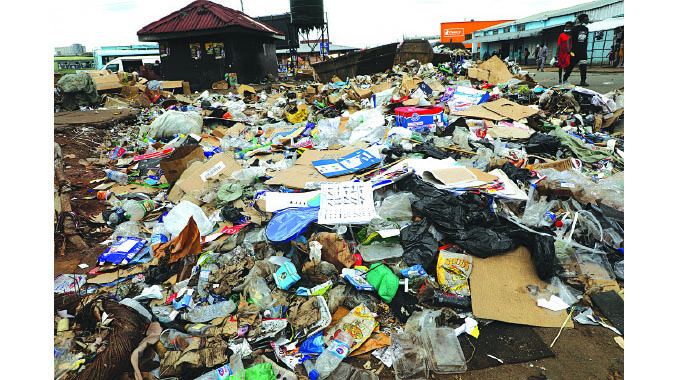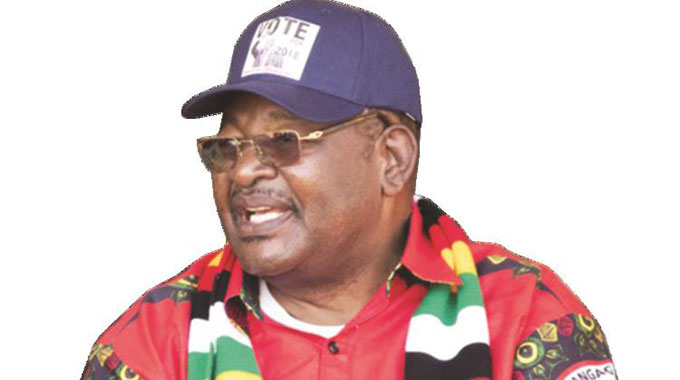EDITORIAL COMMENT: By-election voters need to look at the facts, record

Tomorrow a good slice of the Zimbabwean electorate goes to the polls to elect 28 Members of the National Assembly and 105 councillors for local authorities and everyone hopes that the voters are thinking carefully when they cast their ballots.
While deaths and resignations have produced a modest number of the vacancies, the majority were caused by internecine disputes in opposition ranks with MPs and councillors recalled by the party they actually belonged to when they contested the last general election, usually as part of an electoral pact.
In many cases these seats were also won by opposition candidates in 2013 and 2008, so we have the odd situation that overall Zanu PF is the underdog, although they are defending a handful of seats left vacant, usually by the death of the MP or sitting councillor.
Generally only three parties are contesting almost everything, Zanu PF, the MDC-A and the CCC, the three parties already in Parliament, although there is a good spread of candidates from smaller opposition parties and from independent candidates.
So the results will tell us two things. First it will give a reasonable statistical sample to tell us how big an inroad Zanu PF has made into opposition vote percentages with the major reforms and serious actions of the Second Republic.
Most people expect inroads have been made, especially in the bulk of the seats where the opposition candidates and opposition-led local authority have done so little in the last decade or more. The more interesting question is how far those inroads go.
The second question revolves around opposition supporters, and which of the two major opposition parties will gain the largest percentage of the opposition vote and how far the small opposition parties and the independents will attract support from committed opposition voters fed up with the power struggles involving the major opposition parties and want to try something new.
As expected, Zanu PF and its candidates have run their campaigns, pointing to what has been done, what has been built, what is work in progress since it does take time to reconstruct roads, build dams and the like.
The promises have basically been to finish what has been started and then more of the same.
The record is good, and has been spread out across communities. As President of the entire nation, President Mnangagwa has not been looking at voting figures from the last general election or previous elections when setting priorities, but rather at what is needed with priorities set according to what is needed the most.
The economic reforms mean that the Government at long last has money for a capital budget so has been able to finish what was abandoned work, such as the giant Tugwi-Mukosi Dam, but also to initiate new and desperately needed development, such as the Gwayi-Shangani Dam and the related large pipeline to Bulawayo.
It should be noted that this second dam and the pipeline benefit communities where opposition majorities are common, but since the western areas of Zimbabwe desperately needed both they are getting both proving that the Zanu PF Government does not keep scorecards, but rather wants the whole country to advance rapidly.
In their campaigns, the opposition parties have been very careful not to mention, let alone dwell, on what the local authorities with majority opposition councils, and that means most urban councils, have done. And for a very good reason, that things have got worse not better in these councils.
In the political side of the campaigning Zanu PF has not been slow to point this out, while also stressing Government rescue work such as the emergency programme to fix urban roads, with a fair number already rebuilt or repaired and many more listed for similar work this year.
Zanu PF has also, with its large formal membership and mass grass roots structure, presented the electorate with competent candidates who have all had to face a primary election, ensuring that the local communities and the party grass roots, who actually know the people involved, make the decision on who represents the party.
That means the candidates both have some standing and realise the vital importance of having an excellent relationship with their constituency or ward.
Generally people like to see their MP or councillor being active in their own area and like to know they are available for complaints or ideas. Zanu PF MPs and councillors tend to score highly on those criteria, if only because that is how they won the nomination in the first place and how they will keep it in the next election.
Opposition parties are bad at this. Candidates are chosen “by consensus”, which means the handful of party leaders tend to dish out nominations to their friends, regardless of who they are or what they can do.
And very often, as Harare voters in particular are only too well aware, they do nothing at best and run corruption rings at worst.
Although Parliamentary and council majorities cannot be changed in this large block of by-elections, it could have been an opportunity for the opposition parties to at least offer their policies, but nothing really has been done. The electorate knows they are “not Zanu PF”, but possibly wants to know what they are.
The CCC has been particularly bad at this, pushing personalities, and in particular one personality, rather than policies.
It started with a logo centred on a portrait of the party leader, an odd choice when you think about it and the term limits, and then made a big fuss over a hand signal and party colour.
Besides a senior party member calling for the reversal of land reform, its meetings and rallies have tended to be show time rather than explain time, with the more imaginative dressers getting the attention. But no one knows what they will do, except perhaps unleash violence if they lose.
President Mnangagwa and Zanu PF understand that after 42 years of freedom Zimbabwean voters are not really into symbols of hand or finger waving.
They actually want action and those they elect to make life better.
The opposition parties had their chance with their near total dominance of most urban councils for over a decade, and actually made life so much worse that the central Government had to step in to sort out some of the mess and reverse some of the mistakes, although it would be better if there were enough decent councillors to back those efforts and build on them.
Empty promises and coloured shirts do not change lives. What does change lives is effective action, and that includes remedial action when mistakes were made in the past.
Well over half the voters tomorrow live in urban areas and so can compare actions, and so can make informed choices based on facts on which party has delivered and which party has not.
On those facts there does not seem to be much choice.










Comments